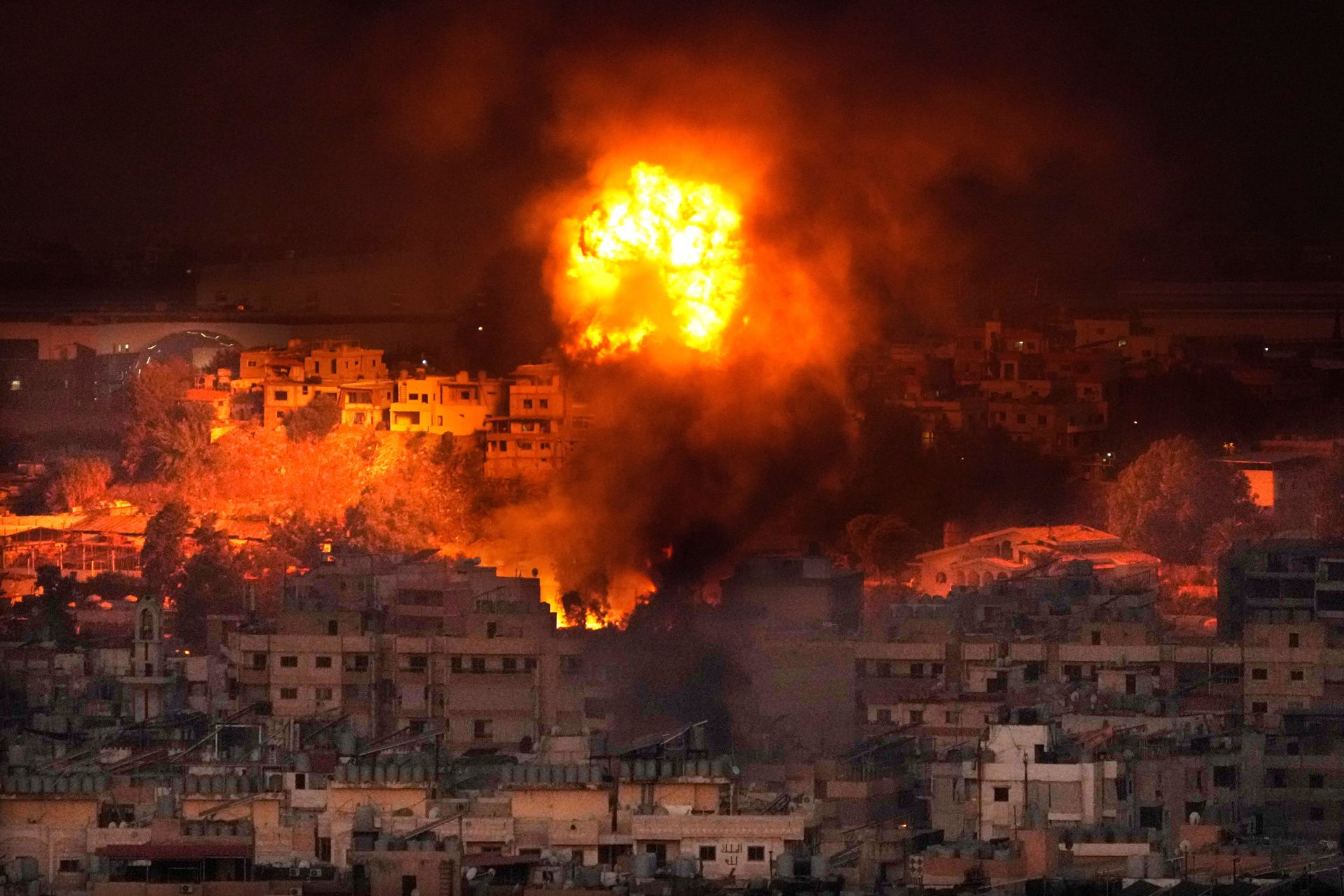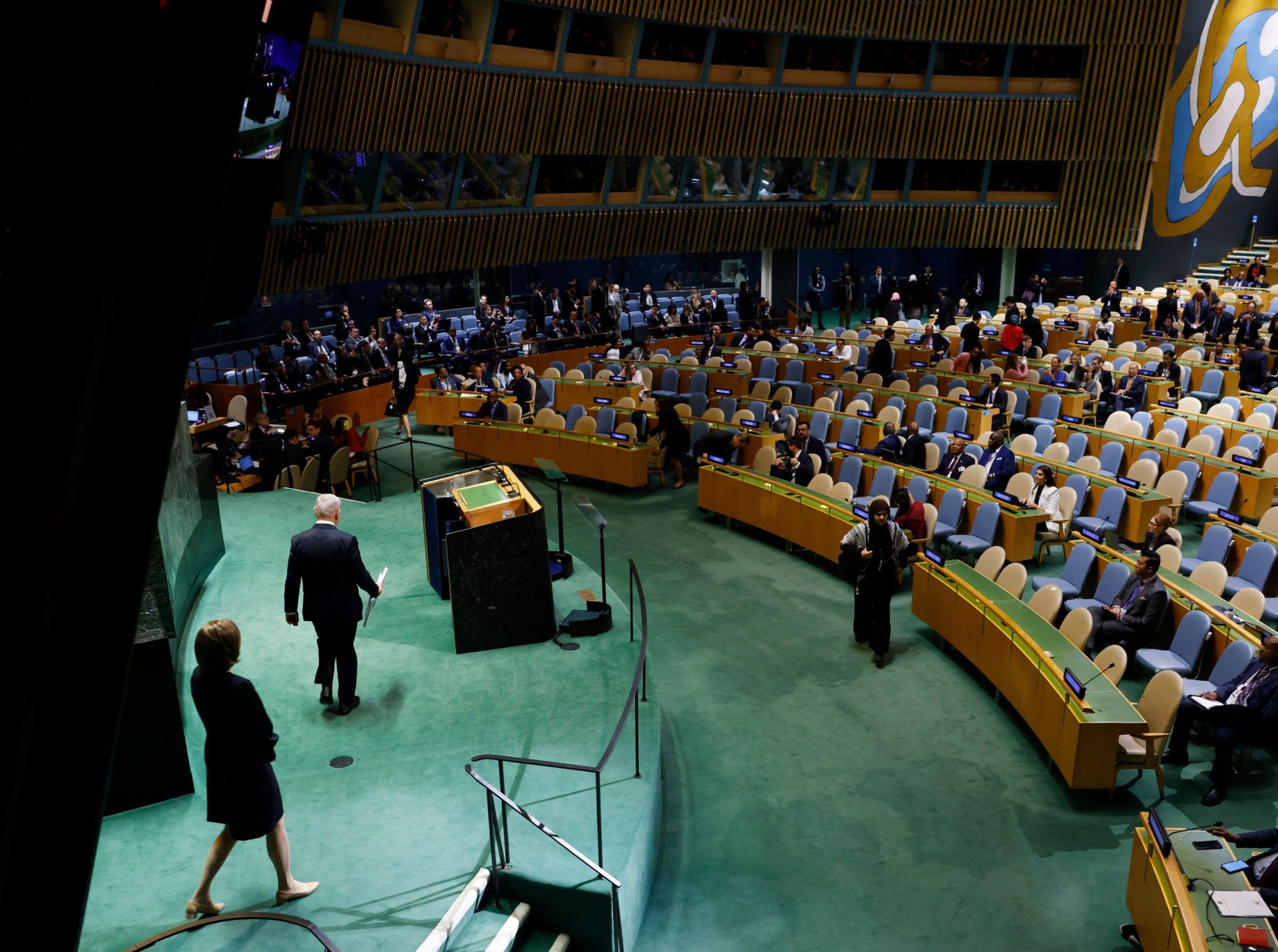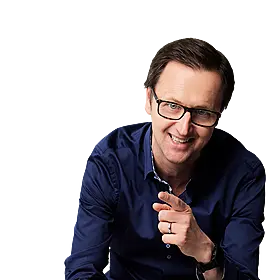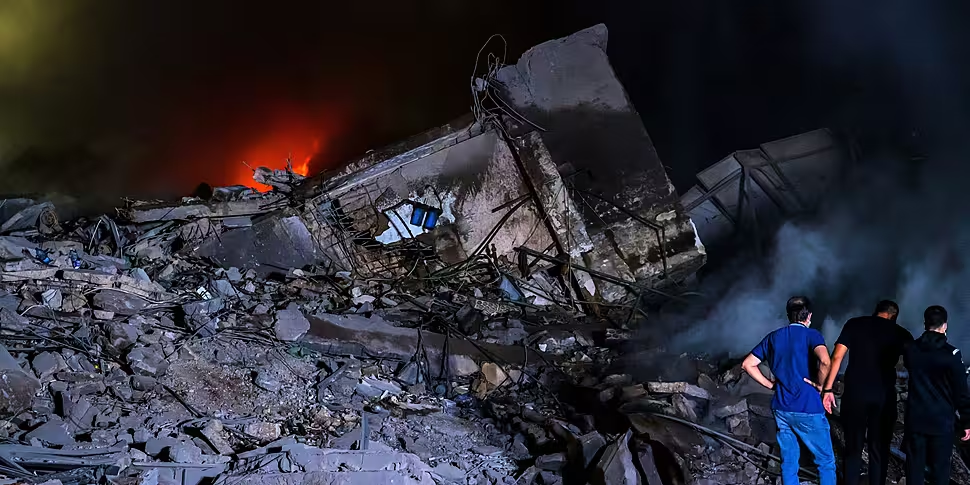Israel has carried out its largest attack on Lebanon's capital Beirut so far in its almost year-long conflict with Hezbollah.
Lebanese officials say at least six people have been killed in the airstrikes overnight.
Israel's military claims it struck the central headquarters of the militant group Hezbollah.
It claimed it had carried out a "precise strike" on Hezbollah's headquarters which it said was "embedded under residential buildings in the heart of the Dahieh in Beirut".
Dahieh - the Hezbollah-controlled southern suburbs of Beirut - has been struck four times over the last week - displacing an estimated 100,000 people.
 Flames rise after an Israeli airstrike in the southern suburbs of Beirut, Lebanon, 28-9-24. Image: Associated Press / Alamy
Flames rise after an Israeli airstrike in the southern suburbs of Beirut, Lebanon, 28-9-24. Image: Associated Press / AlamyFour of the buildings in the area were reduced to rubble on Friday, Hezbollah's Al Manar TV reported.
Iran's embassy in Lebanon described the strikes as a "dangerous, game-changing escalation", calling them a "crime" that merits "appropriate punishment".
Then overnight into Saturday, the Israeli army claimed to have eliminated the head of a Hamas network in southern Syria as well.
Evacuation orders
The first wave of attacks shook windows across the Lebanese capital and sent thick clouds of smoke billowing into the air.
Israel says Hezbollah leader Hassan Nasrallah was the intended target of the strike.
A source close to Hezbollah told the Reuters news agency Nasrallah is still alive and Iran's Tasnim news agency also reported he was safe.
At least six people have been killed in the airstrikes and 91 wounded, according to Lebanon's Health Ministry. It said the figures were preliminary.
Early on Saturday a second round of strikes carried out by Israel's air force followed, targeting what the Israeli military claimed were Hezbollah weapons production facilities and key command centres of the militant group in southern Beirut.
Flames could be seen rising from certain areas after the strike. Israel says it has also been attacking targets in the Bekaa valley, striking the mountain town of Bhamdoun.
It came hours after the IDF called for the immediate evacuation of some specific buildings in southern suburbs for the first time.
Army spokesperson Avichay Adraee said in a post on X that people should "get at least 500m away" from three buildings.
As the attacks took place, the Israeli military claimed it had killed the commander of Hezbollah's missile unit, Muhammad Ali Ismail and his deputy, Hossein Ahmed Ismail.
Friday's strike was the strongest carried out by Israel in Beirut during its nearly year-long conflict with Hezbollah, which began when the Iran-backed group began firing rockets into Israel almost immediately after Israel's retaliation for a Hamas attack from Gaza on October 7th.
More than 720 people have been killed in Lebanon since the conflict escalated following pager and radio explosions, according to Lebanon's health ministry, as over 200,000 people have been displaced.
 Israeli Prime Minister Benjamin Netanyahu prepares to speak at the UN General Assembly in New York with empty chairs visible after delegates walk out, 27-9-24. Image: UPI / Alamy
Israeli Prime Minister Benjamin Netanyahu prepares to speak at the UN General Assembly in New York with empty chairs visible after delegates walk out, 27-9-24. Image: UPI / AlamyEarlier on Friday, Israeli Prime Minister Benjamin Netanyahu vowed to keep up Israel's attacks on Iranian-backed fighters in Lebanon during a speech to the United Nations General Assembly.
"As long as Hezbollah chooses the path of war, Israel has no choice, and Israel has every right to remove this threat and return our citizens to their homes safely," he said.
"Israel has been tolerating this intolerable situation for nearly a year. Well, I've come here today to say enough is enough," Mr Netanyahu added.
A large number UN delegates walked out as he began speaking.
Meanwhile a protest in solidarity with the people of Lebanon will take place in Dublin today.
Members of the Lebanese community will gather outside the Department of Foreign Affairs at 1pm this afternoon.
They will call on the Irish Government for immediate action to end the war on Lebanon.
Reporting by: IRN and Cliona O'Dwyer









